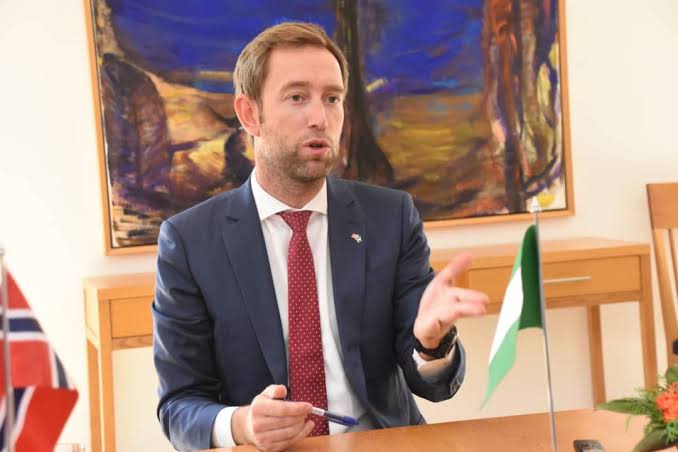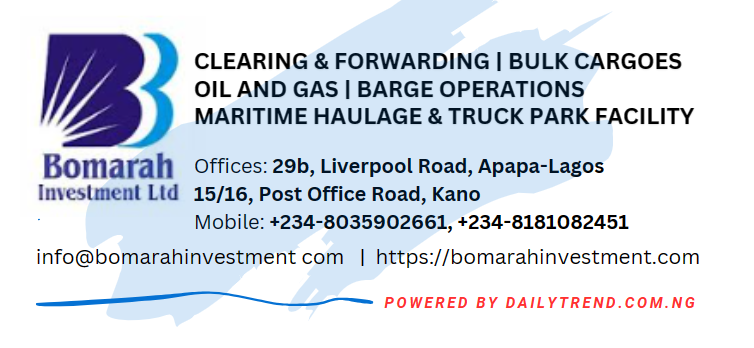Norwegian Seafood Council Trains Fisheries Officers, Stakeholders in Lagos

By John Omoaka
The Norwegian Seafood Council on Tuesday embarked on a four-day capacity building and training for fisheries officers and stakeholders, involved in fish farming, processing and export from Nigeria in Lagos.
The Norwegian Ambassador to Nigeria, His Excellency, Knut Eiliv Lein, said the capacity building was a fulfilment of what was earlier promised.
“Today, we will move one step further from our political gatherings that we had before. We earlier offered our assistant to do capacity building here in Nigeria, within the fish industry. There must be cooperation between the two nations to the benefit of all sides and not the least, to the benefit of the end user here in Nigeria. Only by removing those barriers to trade can we continue to secure high quality food and fish at the reasonable price,” he said.

On his part, the Director General from the Department of Fisheries and Ocean Policy, Norway, Erling Rimestad said the essence of the capacity building is to improve the locally produced seafood in Nigeria and its entry into the European markets.
“I hope this capacity building will help to further develop the fish farming industry in Nigeria to improve the quality of the locally produced seafood and know how to enter the European markets,” he said.
According to him, the currency restrictions on fish products has made it much more difficult and expensive to buy stockfish from Norway. However, the Norwegian government will continue to work to remove stockfish from the list of items with foreign exchange restrictions.
Meanwhile, Director Africa, Trond Kostweit, said with their massive experience in fish farming business, Nigeria is in safe hands for the training.
“We have a lot of experience in seafood business and we are sure that the training is going to benefit Nigeria as a country and also the Nigerian businesses,” he added.
The Consultant to the Norwegian Seafood Council, Abbey Cheke, said the need for the capacity building cannot be over emphasized owing to the fact that there is a big gap which needs to be filled only by receiving training from the expert like the Norwegians.
“Everybody that’s actively involved in fish farming export knows that there’s a big gap. The big gap is that the process in exporting our fish does not allow entry into the European markets and other international markets because Nigeria’s fish products is banned but not banned forever. It is banned because of certain logistics that we don’t have in place in Nigeria.
“Hence, the key objective of the training is to allow the entry of Nigeria’s farmed fish products like Catfish, Tilapia and others into the international trade markets of the European Union and the Americans,” she said.
The Honourable Minister of Agriculture and Rural Development, Dr Mohammed Mahmood Abubakar who was ably represented by the Director, Fisheries and Aquaculture Department, Ime Umoh, commended the organizers for the theme of the workshop which was apt and very timely.
“Permit me to say that this programme could not have come at a more auspicious time than now when the Ministry is working seriously on the zero reject export plan for all agricultural products in the country.
“It is therefore my earnest expectations that the outcome of the capacity building will create the required road-map to support the zero reject export plan for fisheries products initiated by the Federal Ministry of Agriculture and Rural Development and to improve our farmed processed fish for export acceptable by EU and help Nigeria to contribute more significantly to the World Fish Trade,” he said.
Some business owners who are into fish business said the impact of the capacity building is an eye opener and the benefit will be seen in no distant time.
Evelyn Nasamu of Me Lyns Global Services said “The impact of this capacity building is an eye opener. By the time we have the certificate and other required documentation, we will be able to export and make more money.”
Emeka Iloghalu of Fisheries and Aquaculture Business Development Agency said “The capacity building initiated by the Norwegian Seafood Council has several benefits. It has thrown light on the importance of processes and protocols required to have a successful fish business.”
Representatives from the Central Bank of Nigeria (CBN), Nigeria Customs Service, and National Agency For Food And Drug Administration And Control (NAFDAC) were present including various associations of fish business.






